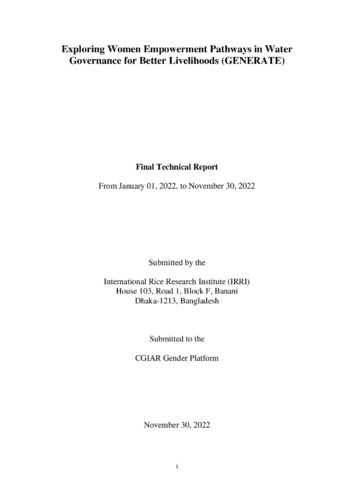Exploring Women Empowerment Pathways in Water Governance for Better Livelihoods (GENERATE)
Abstract
The coastal polder zones in Bangladesh, home to around eight million people, see significant contributions from women in both domestic and production spheres. However, water management remains male-dominated due to limited female access to resources and restrictive social norms. This study examined gender and power dynamics in water governance and their impact on gender equality and women’s empowerment. From 139 polders, 56 water management groups (WMGs) were randomly selected in Khulna and Patuakhali, involving 1360 households. Findings showed that women engaged mainly in training and community service, while men handled infrastructure and production activities. Women actively participated in WMG meetings and decisions about sluice gate operations and membership fees, although leadership roles were male-dominated, with women rarely in critical positions like president or vice-president. Increased female participation improved agricultural production and household income, supported by government 30% quota policies. However, this did not translate into significant decision-making roles due to cultural norms and domestic burdens. Investing in women's technical and leadership skills can enhance their confidence and empowerment in community governance. Further research is needed to understand the impact of increased female participation on gender relations and power dynamics at household and community levels.

